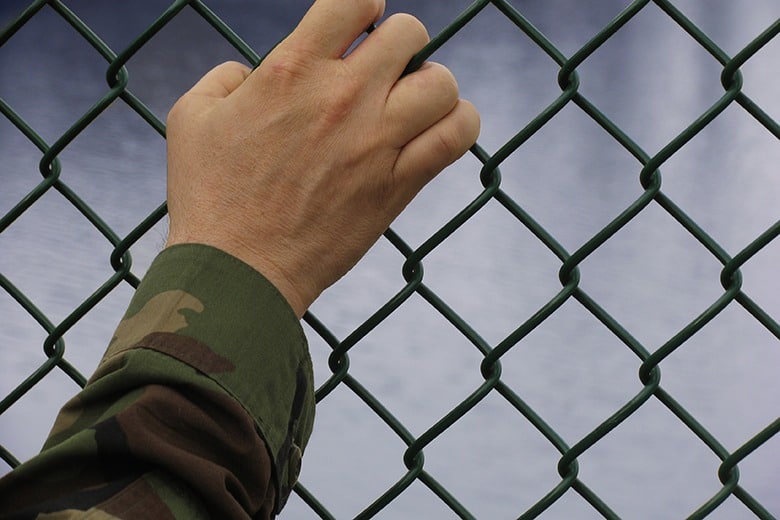Most disabilities stemming from injuries or illnesses accrued or aggravated while in military service are compensable under the VA’s disability compensation benefits scheme. A notable exception is when the illness or injury stemmed from the service member’s willful misconduct.
What the Law Says
The United States Code states that “no compensation shall be paid if the disability is a result of the veteran’s own willful misconduct or abuse of alcohol or drugs.”[1] The Code of Federal Regulations (hereinafter “the CFR”) state that “[b]asic entitlement for a veteran exists if the veteran is disabled as the result of a personal injury or disease (including aggravation of a condition existing prior to service) while in active service if the injury or the disease was incurred or aggravated in line of duty.”[2] The CFR defines in line of duty as:
an injury or disease incurred or aggravated during a period of active military, naval, or air service unless such injury or disease was the result of the veteran’s own willful misconduct or, for claims filed after October 31, 1990, was a result of his or her abuse of alcohol or drugs…Requirements as to line of duty are not met if at the time the injury was suffered or disease contracted the veteran was: (1) Avoiding duty by desertion, or was absent without leave which materially interfered with the performance of military duty. (2) Confined under a sentence of court-martial involving an unremitted dishonorable discharge. (3) Confined under sentence of a civil court for a felony as determined under the laws of the jurisdiction where the person was convicted by such court.[3]
The CFR defines willful misconduct as:
an act involving conscious wrongdoing or known prohibited action. A service department finding that injury, disease or death was not due to misconduct will be binding on the Department of Veterans Affairs unless it is patently inconsistent with the facts and the requirements of laws administered by the Department of Veterans Affairs. (1) It involves deliberate or intentional wrongdoing with knowledge of or wanton and reckless disregard of its probable consequences. (2) Mere technical violation of police regulations or ordinances will not per se constitute willful misconduct. (3) Willful misconduct will not be determinative unless it is the proximate cause of injury, disease or death.[4]
What it Really Means
Illnesses or injuries brought about by willful misconduct are barred from anchoring a claim for service-connected disability compensation, non-service-connected disability pension (hereinafter “VA Pension”), Dependency and Indemnity Compensation (hereinafter “DIC”), and VA vocational rehabilitation benefits. Fortunately, the Courts have stated that there is a presumption that an illness or injury incurred or aggravated in service is not the result of willful misconduct and this presumption can only be overcome by a preponderance of the evidence (more likely than not, or 51%).[5]
Common examples of willful misconduct include incidents involving alcohol or drug use, vehicular and other negligent accidents, physical assaults or self-inflicted wounds, and conditions resulting from general alcoholism or drug abuse. Incidents involving alcohol use will be considered willful misconduct when the alcohol consumption alone is enough to cause illness or injury, or when the intoxication from consuming alcohol proximately causes illness or injury.[6] Simply drinking an alcoholic beverage is not of itself willful misconduct, and any natural conditions which are secondary to chronic alcohol drinking are not considered willful misconduct.[7] Incidents involving drug use will be considered willful misconduct when it is the progressive and frequent use of drugs to the point of addiction; however, infrequent drug use is not considered willful misconduct by itself.[8] As with alcohol, any natural conditions which are secondary to chronic drug use are not considered willful misconduct.[9] It is important to note that drug and alcohol use, including addiction, is not considered willful misconduct when it is secondary to a service-connected disability and drug and alcohol use and abuse may be considered as evidence of an increase in severity of a service-connected disability.[10]
The VA General Counsel originally issued an opinion regarding tobacco use in service and disability benefits in February 1993, indicating that service connection may be granted for illness or injury stemming from in-service tobacco use.[11] It was later clarified and stated that the adjudicator must take into consideration the possible effect of smoking before and after service. Suicide and attempted suicide is not considered willful misconduct if the Veteran was not of sound mind at the time of the suicide or suicide attempt and the his or her unsound mind was due to a service-connected disability.[12] Unless present prior to service, venereal disease is almost always able to be service connected, regardless of the actions that brought about the venereal disease.[13] Even though most injuries incurred while committing actions which led to the incarceration of the servicemember would be considered the fruit of willful misconduct and not service-connectable, injuries occurred while in the brig can be service-connectable.
Even if the Veteran receives a fully honorable discharge, he or she can be denied service-connection for an in-service illness or injury if the illness or injury is the result of willful misconduct.
[1] 38 USC §§ 1110 and 1131.
[2] 38 CFR § 3.4(b)(1)
[3] 38 CFR § 3.1(m)
[4] 38 CFR § 3.1(n)
[5] Smith v. Derwinski, 2 Vet. App. 241, 244 (1992).
[6] See 38 C.F.R. §§ 3.301(c) and (d).
[7] 38 C.F.R. § 3.301(c)(2).
[8] 38 C.F.R. § 3.301(c)(3).
[9] Id.
[10] Allen v. Principi, 237 F.3d 1368, 1370 (Fed. Cir. 2001).
[11] VAOPGCPREC 2-93; 58 Fed. Reg. 42756 (1993).
[12] 38 C.F.R. § 3.302.
[13] 38 C.F.R. § 3.301(c)(1).

